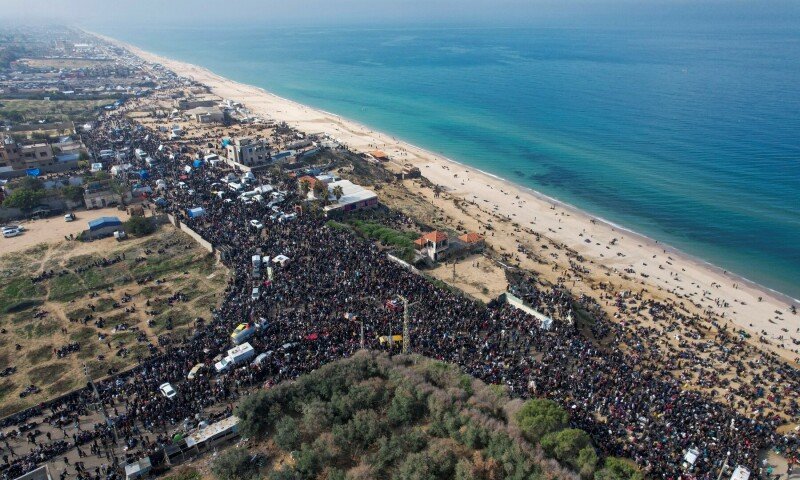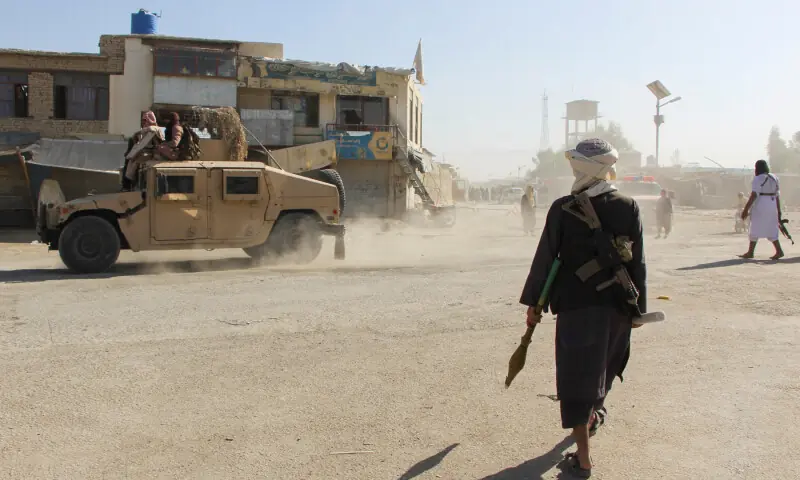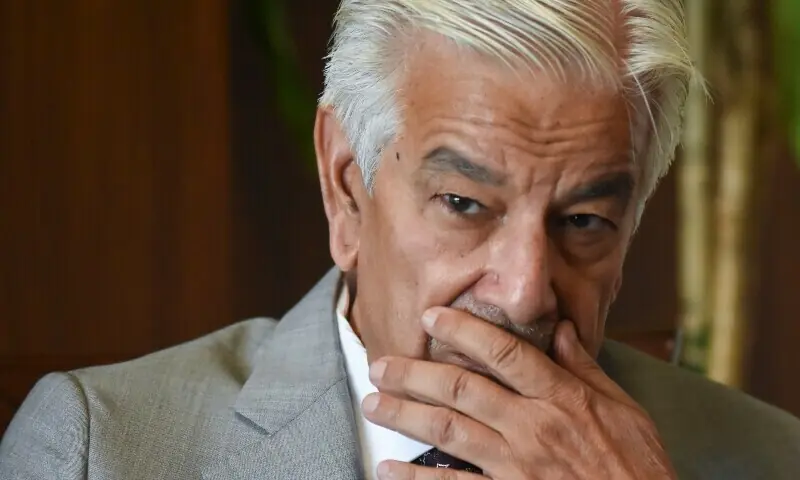The US president’s suggestion to Egypt and Jordan to take in more Gaza residents raises fears among Palestinians of being forcibly displaced in another “Nakba.”
US President Donald Trump’s suggestion that Jordan and Egypt should take in more Palestinians from Gaza, devastated by 15 months of Israeli bombing, is raising concern among residents of the enclave and its neighbors.
The proposal is likely to raise fears among Gaza’s 2.3 million Palestinians of being expelled from the coastal strip and stoke concern in Arab states that have long worried about the destabilizing impact any exodus would have. of that type.
What’s behind the worries?
Palestinians have long been tormented by what they call the “Nakba,” or catastrophe, when 700,000 of them were dispossessed of their homes when Israel proclaimed its creation in 1948.
Many were expelled or fled to neighboring Arab states, including Jordan, Syria and Lebanon, where many of them or their descendants still live in refugee camps. Some went to Gaza. Israel disputes the version that they were expelled.
The latest conflict since then has seen unprecedented Israeli bombing and ground offensive in Gaza, devastating urban areas. Palestinians and UN officials say there are no longer safe areas in Gaza to seek refuge.
Most Gazans have already been displaced several times during Israel’s attack, launched after Hamas’ October 7, 2023 attack on Israel that killed 1,200 people, according to Israeli counts.
The military campaign has killed more than 47,000 Palestinians in Gaza since then, according to Palestinian health officials. A recent study by academics evaluating the period until June 2024 suggests the death toll could be 40 percent higher.
What happened during this conflict?
Before Israel launched its attack, it told Palestinians in northern Gaza to move to what it said were safe areas in the south. As the offensive expanded, Israel told them to head further south toward Rafah.
According to UN estimates, up to 85 percent of the 2.3 million residents of Gaza (one of the most densely populated areas in the world) have already been displaced from their homes.
Many Palestinians in Gaza have said they would not leave even if they could because they fear it could lead to another permanent displacement, a repeat of what happened in 1948.
Meanwhile, Egypt has kept the border firmly closed except to allow a few thousand foreigners, dual nationals and a handful of others to leave Gaza. Egypt and other Arab nations strongly oppose any attempt to push Palestinians across the border.
However, the scale of this conflict dwarfs other Gaza crises or outbreaks in past decades, and the humanitarian disaster deepens for Palestinians by the day.
What do the Arab, Western States and the UN say?
From the early days of the conflict, Arab governments, particularly Egypt and Jordan, said Palestinians should not be expelled from the land where they want to form a future state, which would include the West Bank and Gaza.
Like the Palestinians, they fear that any mass movement across the border would further undermine prospects for a “two-state solution” – the idea of creating a state of Palestine alongside Israel – and leave Arab nations facing the consequences.
Senior UN officials have added their voices to concerns about mass displacement. UN aid chief Martin Griffiths said last February that it was an “illusion” to think people in Gaza could evacuate to safety.
What have the Israeli government and its politicians said?
Israeli Foreign Minister Israel Katz said on February 16, 2024 that Israel had no plans to deport Palestinians from Gaza. Israel would coordinate with Egypt on the Palestinian refugee issue and find a way not to harm Egypt’s interests, Katz added.
However, comments by some members of the government have stoked Palestinian and Arab fears of a new Nakba.
Finance Minister Bezalel Smotrich on December 31, 2023 asked Palestinian residents of Gaza to leave the besieged enclave. National Security Minister Itamar Ben-Gvir said the war presented an “opportunity to focus on encouraging the migration of Gaza residents.”
After Jordanian Foreign Minister Ayman Safadi said on December 10, 2023, that Israel’s military operation was “a systematic effort to empty Gaza of its people,” Israeli government spokesman Eylon Levy called those comments of “scandalous and false accusations.”
According to a Reuters In an October 2024 report, which cited several sources, Israeli leaders sought to secure strategic achievements that go beyond military victories: creating de facto buffer zones and protecting its borders from any future attacks.
Header image: A drone view shows Palestinians waiting to be allowed to return to their homes in northern Gaza after being displaced south on Israel’s orders during their war, amid a ceasefire between Israel and Hamas, in the center of the Gaza Strip on January 26. – Reuters/Stringer









